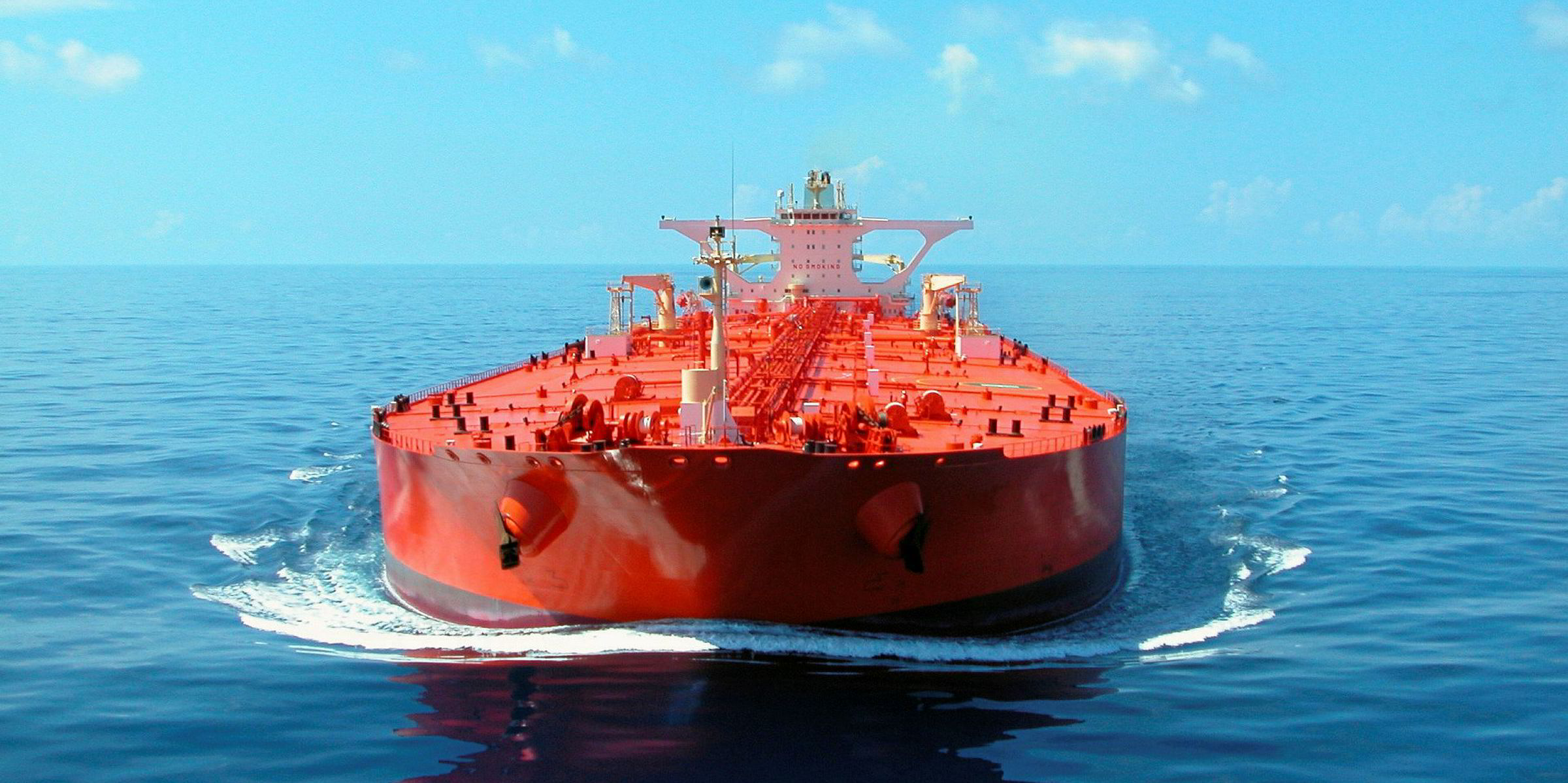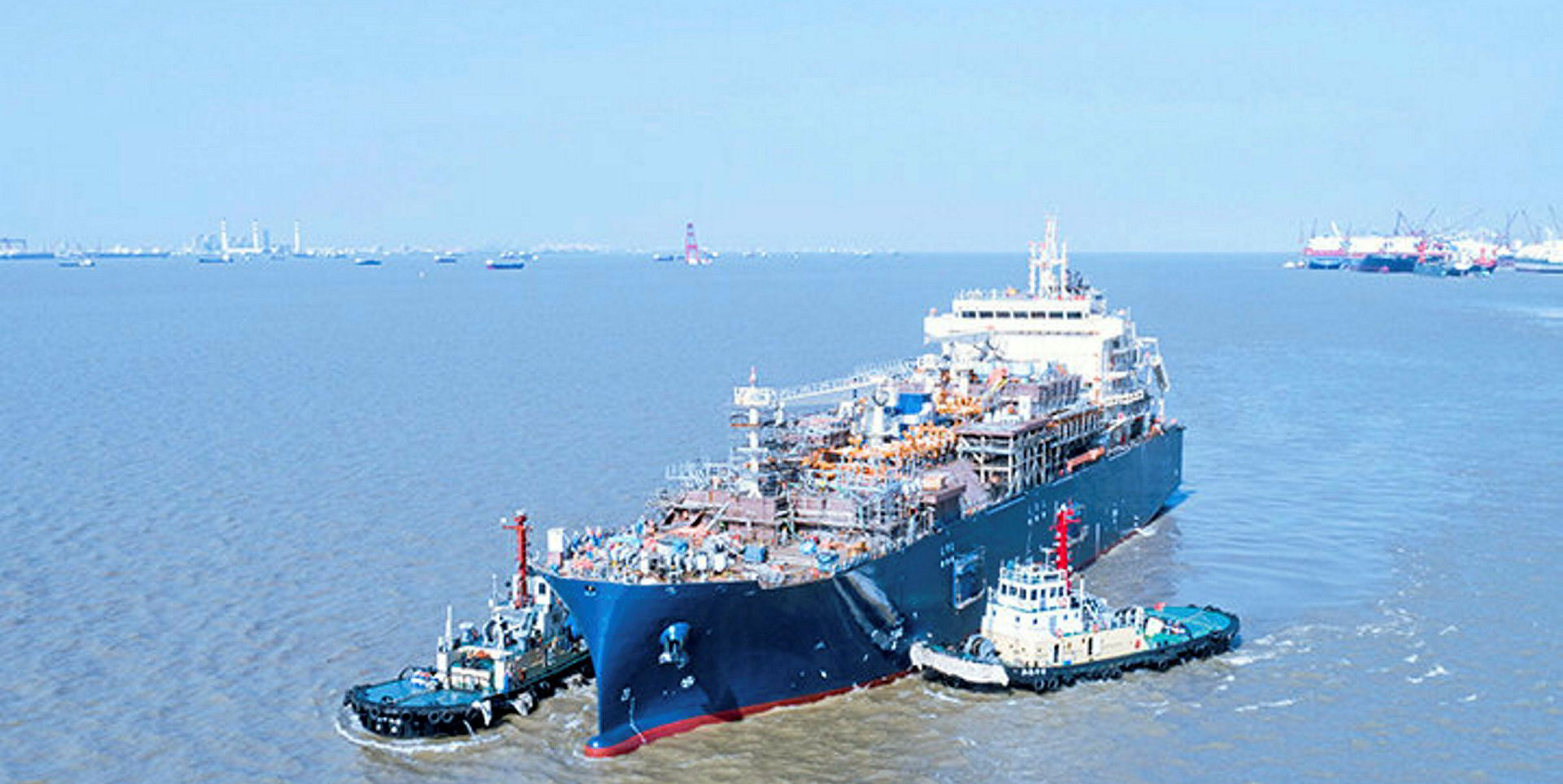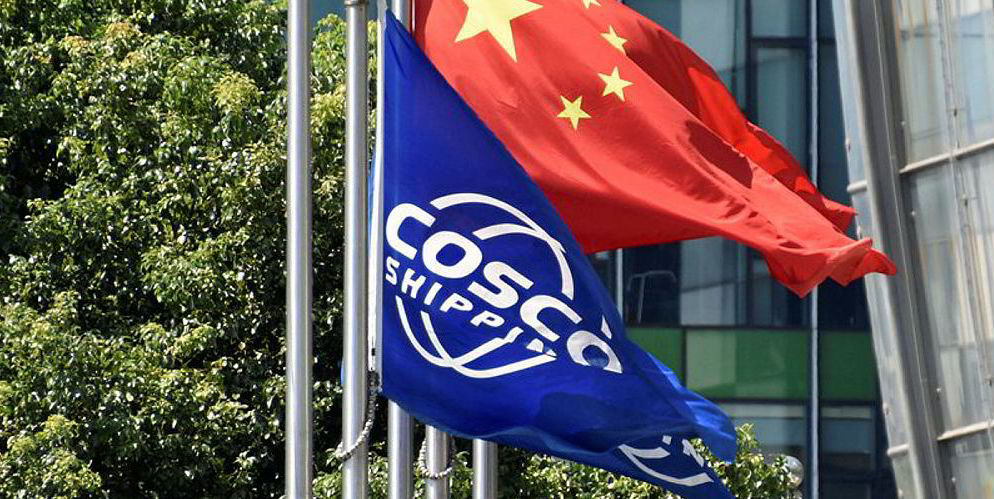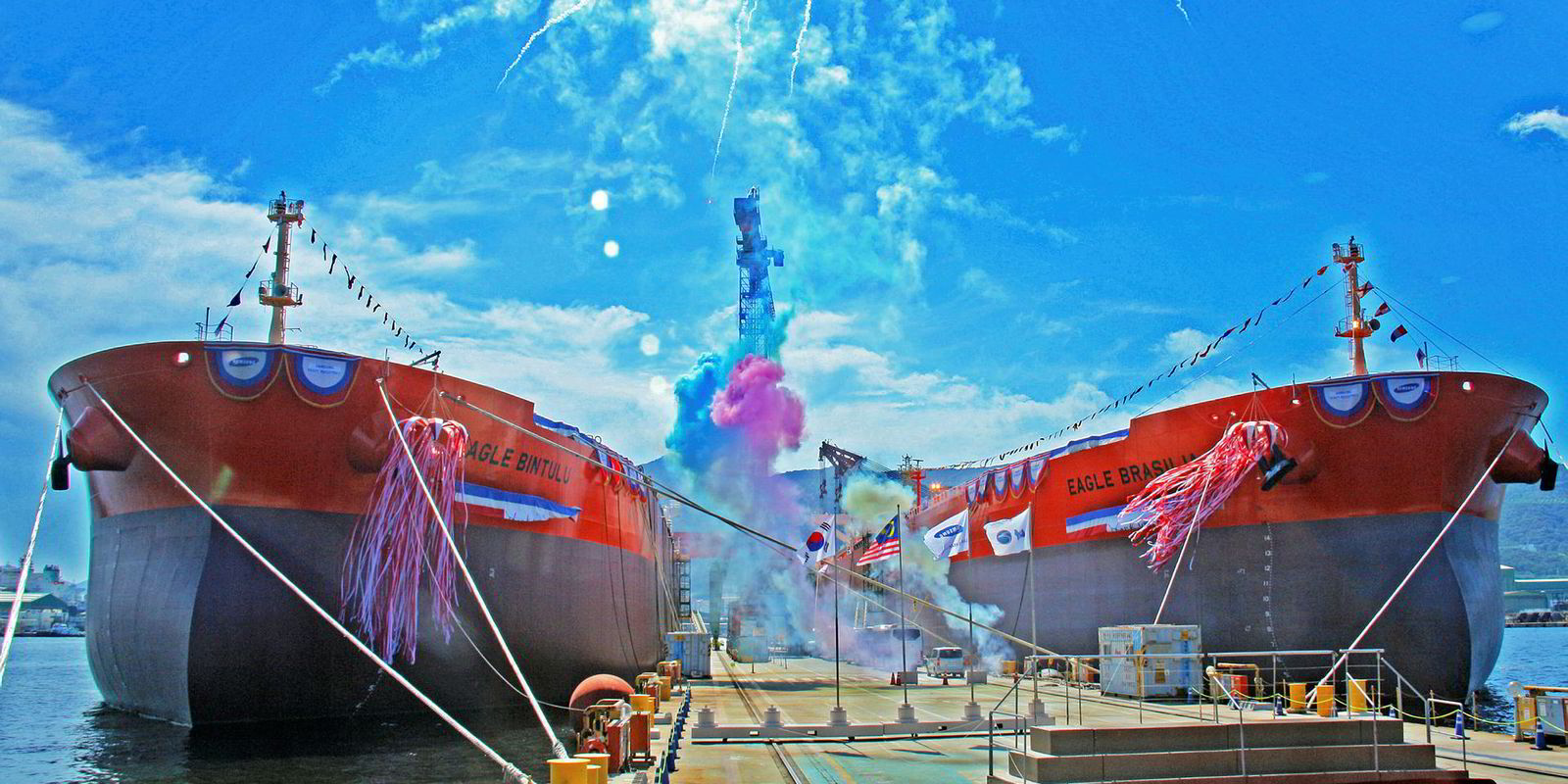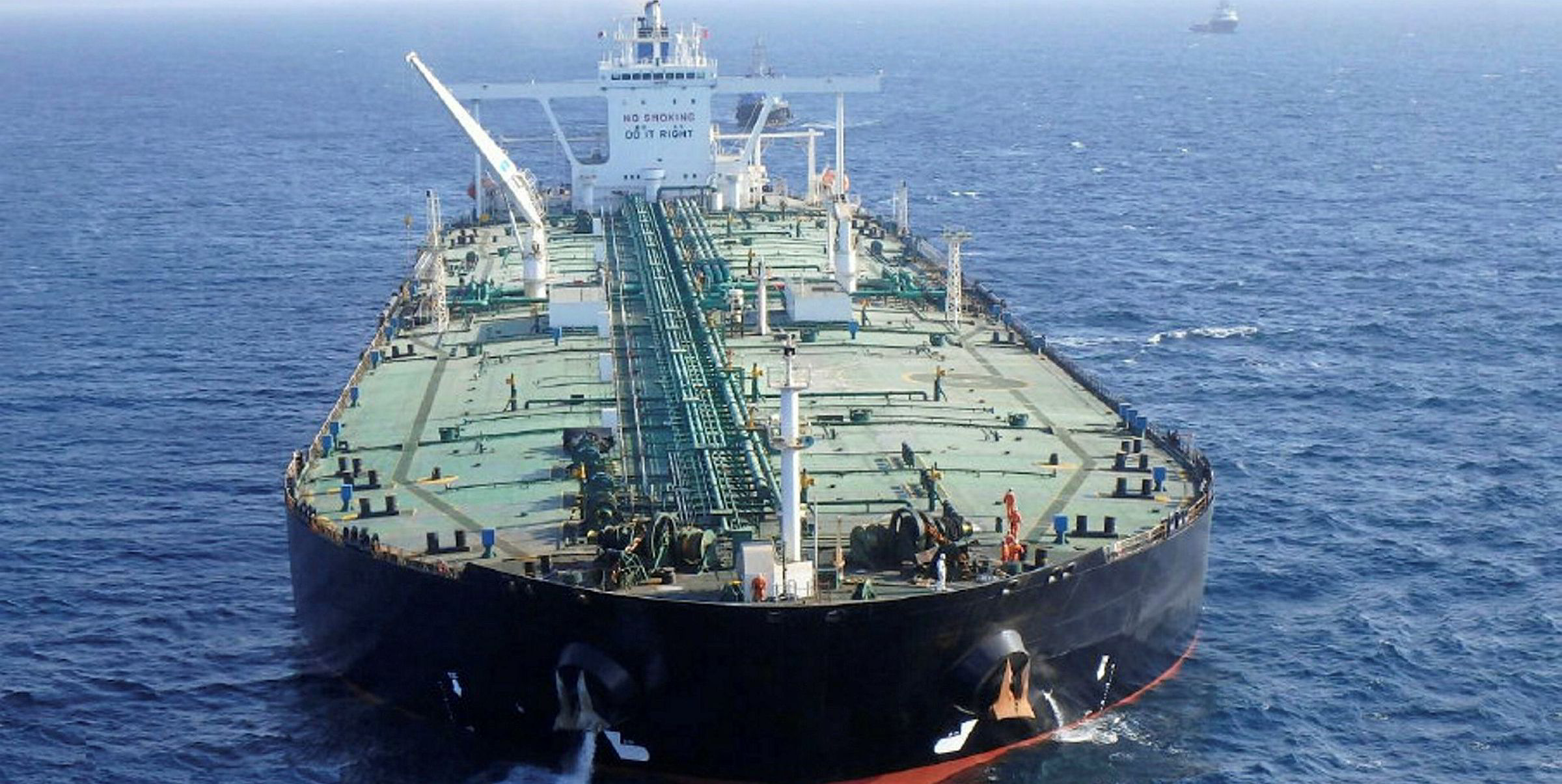Shipbuilding, pricing and bunkering details of the groundbreaking LNG-fuelled VLCCs for energy major Total and MISC Group subsidiary AET have begun to emerge.
On Tuesday, Total said it had signed a charter deal with AET for two LNG-fuelled 300,000-dwt VLCCs. The ships will be delivered in the first quarter of 2022 and will join the French energy major’s time-chartered fleet.
But neither company was willing to provide any further details about the ships' price, technical specifications or where they will be constructed.
TradeWinds understands the ships will be built at Samsung Heavy Industries in South Korea.
A newbuilding source said they are priced at less than $105m each and will be fitted with type-C bunker tanks.
AET is believed to have an option to build an additional three vessels at the yard.
One industry observer suggested that the lack of details on the ships might be a reflection on the difficulty of firming up newbuilding contracts due to the ongoing travel restrictions imposed as a result of the Covid-19 pandemic.
Long term
The deal on the ships was signed between AET and Total subsidiary Chartering and Shipping Services.
A Total spokesman told TradeWinds that the VLCCs are chartered on a "long-term" basis from AET and will be supplied with LNG bunkers in the Amsterdam-Rotterdam-Antwerp region in northern Europe and in Singapore.
Total said the vessels will be supplied with LNG bunkers by its fuelling arm, Total Marine Fuels Global Solutions.
The energy major will have an 18,600-cbm LNG bunker vessel (LNGBV) — the newbuilding Gas Agility — available in Rotterdam, another similar-size vessel in Marseille, and access to capacity on a 12,000-cbm LNGBV in Singapore.
Total is also looking at additional LNG bunkering opportunities in Oman, China and the US region.
Best solution
Luc Gillet, Total’s senior vice-president of shipping, said: “LNG is the best and immediately available solution to reduce the environmental footprint of shipping.
“The use of LNG to fuel our chartered vessels is the illustration of our determination to reduce the carbon footprint of our activities.
“With this decision, we reaffirm today our positive contribution to a sustainable shipping industry and our commitment to extend the use of LNG as a clean marine fuel.”
The major said LNG is now "the best available and technologically proven solution to significantly reduce the environmental footprint of maritime transport", detailing that it cuts SOx and particulates by 99%, NOX by 85% and greenhouse gases by 20%.
Yee Yang Chien, chairman of AET and group chief executive of shipowner MISC, highlighted his company’s commitment to what he described as a “robust sustainability agenda ... to protect the natural environment”.
Thanking Total for their confidence in AET, he said: "As a group, we took early and bold decisions to invest in LNG dual-fuel vessels and I am pleased to see the industry responding so positively to our strategy."
Ambitions
Competing energy majors Shell and Total have been engaged in separate long-running projects to develop LNG-fuelled VLCCs. But they were pipped to the post to become the world's first mover when Cosco Shipping Energy Transportation Co ordered the world's first LNG-fuelled VLCC at Dalian Shipbuilding Co last year.
AET has been one of the pioneers in developing LNG-fuelled tanker tonnage, initially for aframax vessels.
Sources close to the company said building a dual-fuelled VLCC has been a long-held ambition for AET.
The outfit last ordered a VLCC more than five years ago in a joint venture with trader Koch.
Other shipowners, including Evangelos Marinakis' Capital Maritime & Trading, have looked at constructing LNG-fuelled VLCCs. But brokers have said it has proved difficult to secure a charter rate on the ships, which covers the additional cost of building them for gas-fuelling.
